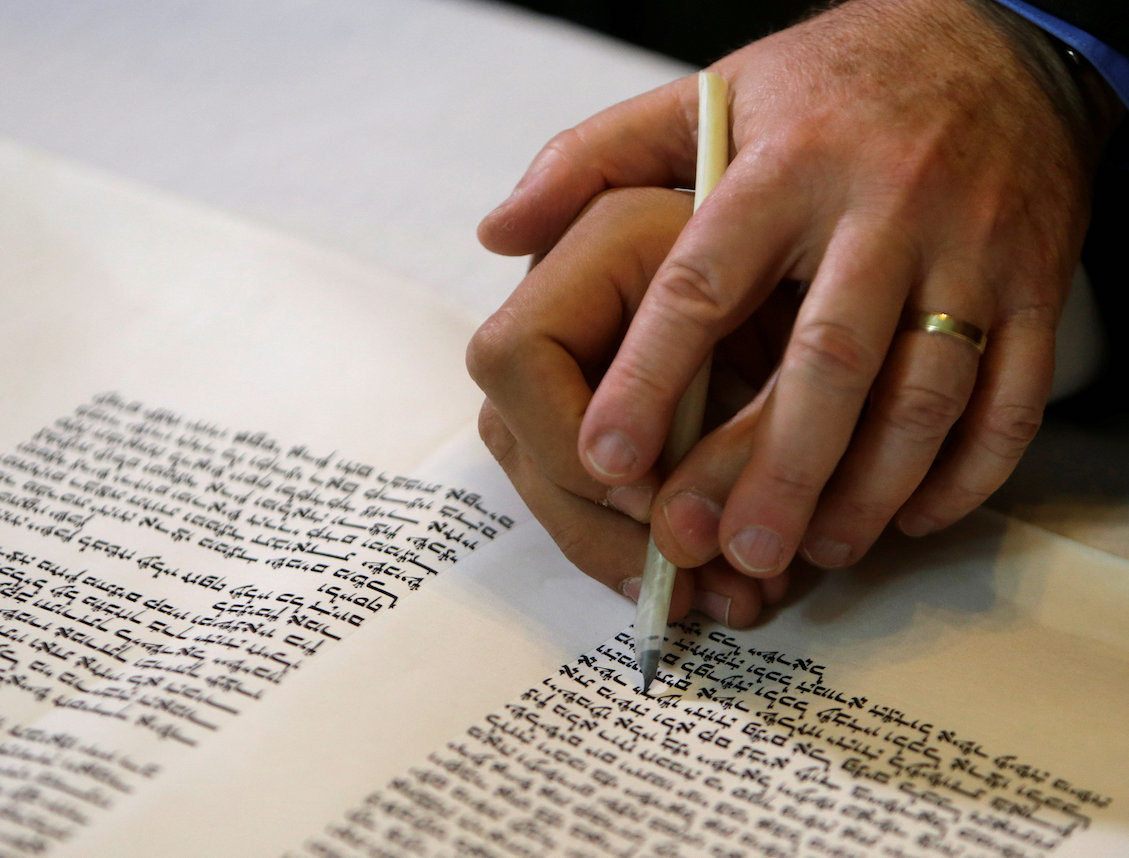 Reuters/David W Cerny
Reuters/David W Cerny From the air, Denver International Airport looked like a city of white tents erected on a desert plain, its billowing white roofs meant to evoke the snow-capped Colorado Rockies and the historic dwellings of the region’s Native Americans.
For me, the resonance was different.
As my plane descended, on that trip three years ago, my head filled with the well-known Hebrew words from this week’s Torah portion: “Ma tovu ohalecha Yacov, mishkanotecha Yisrael” (How good are your tents, Jacob, your holy dwelling places, Israel!) (Numbers 24: 5).”
These are the words of the sorcerer Balaam. Balak, king of Moab, where the newly freed Hebrews had temporarily settled, had hired Balaam to curse their encampment. But as Balaam looked down from the mountaintop and began to pronounce the curse, out came these words of blessing.
Both his intention to curse and his words are transformed. His phrase begins with mundane tents and Jacob’s secular name. Yet, by the line’s end, “Jacob” becomes “Yisrael” and the “ohelim” (tents) become “mishkanot” (holy places for God to dwell). Both words, “mishkan” and “Yisrael,” contain names for God, “Shekhinah” and “El” respectively. Both Jacob and his tent become suffused with holiness.
As I looked out the airplane window, I chanted the phrase to myself. It described my trip’s mission, a pilgrimage to turn my own tent into a mishkan.
My pilgrimage was not to a place but to a community that had grown around a profound teacher, Reb Zalman Schachter-Shalomi, who had died a month earlier, on July 3, 2014. It was one of many trips I have made over the past four decades — not only to Colorado but to Berkeley, Philadelphia, the Catskills and elsewhere — in search of making this transformation from a body in the secular world to a vessel in which God can dwell.
Reb Zalman said he began each day with the exclamation: “Here we are again, God! What kind of ride can I give you today?” It is this sense that we are vessels for bringing holiness into the world that has made Jewish practice so precious to me.
Reb Zalman was a temporal Colossus of Rhodes, standing with one foot in the 19th century and the other in the 21st, despite having witnessed the atrocities of the 20th century. Narrowly escaping Vichy France as a young man, he came to the United States in 1941. Ordained and fully rooted in Orthodox Judaism, his life kept teaching him. He interacted with mystics of other religions and the countercultural world of the 1960s and ’70s.
He evolved, creatively blending Jewish mysticism, progressive environmental and feminist politics, and the shared spiritual wisdom transcending religious boundaries; enabling him to give his followers an alternative to the post-Holocaust Judaism that looked outward as it reconstituted itself after Hitler’s attempt to banish us from the material world.
The Judaism of my youth was Judaism of the ohel/tent. Our people’s losses were so monumental that our bereft leaders could do little but attempt to reestablish footholds in the material world. They built Israel and they built buildings, as if to say to the world (and to themselves), “Am Yisrael Chai! (The people of Israel live!)
In the 1950s, as I sat on hard chairs in the un-air-conditioned classrooms of New Orleans’ Touro Synagogue, my teachers rarely attempted to transmit a connection with God. How could they? So many survivors, whether they had actually suffered the Shoah, had lost their faith. How could God have abandoned God’s people?
Much of this God-wrestling was unconscious. So soon after World War II there was as yet no language for the theological metamorphosis that followed the Holocaust. The teachers before us had not found words for what was rumbling in their shocked and tormented psyches. They foisted upon us a rote Judaism, whose essence we could not understand.
God bless them, and may they rest in peace. They were stunned and grieving — wrestling with God.
Reb Zalman, founder of the Jewish Renewal Movement, provided an alternative to this exoteric Judaism, making Jewish esoteric teachings available to those locked out of the gates of Jewish wisdom by assimilation and gender. Diving deeply into Judaism as a spiritual path, he taught us to be Jews who danced with God and prayed with our feet as we marched for social justice, as well as Jews who sat in silence and felt the movements of holiness within.
“Each of us has been deployed, our call imprinted at birth,” Reb Zalman said. “We are arrows shot from a Holy Quiver as our souls take bodies when we exit our mothers’ wombs. Each of us is different, yet we are all in the image of God, each with a unique purpose.”
Our task, he taught, was to continually refine our souls so that we could remain aligned with that purpose, in order to manifest our distinct face of God.
In memory of my beloved teacher, I strive daily to turn my tent into a mishkan.
Rabbi Anne Brener, a Los Angeles-based psychotherapist and spiritual director, is a professor at the Academy for Jewish Religion, California.























 More news and opinions than at a Shabbat dinner, right in your inbox.
More news and opinions than at a Shabbat dinner, right in your inbox.